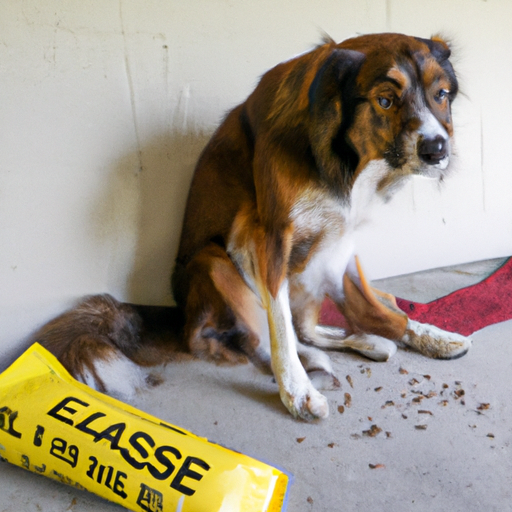Introduction
As a caregiver, you are constantly on the lookout for your ward’s well-being, and this vigilance extends to your beloved pets too. One question that might have been bothering you off late is this – Is flaxseed harmful to your dogs?
The Benefits and Risks of Flaxseed
Flaxseed has been touted for its health benefits in human diets, but when it comes to dogs, it’s a different story.
-
Omega-3 Fatty Acids: Flaxseed is a rich source of Omega-3 fatty acids, which are beneficial for a dog’s skin and coat. However, dogs cannot metabolize flaxseed as efficiently as humans do, leading to a potential Omega-3 deficiency.
-
Fiber Content: Flaxseed is high in fiber, which, in moderation, can help improve your dog’s digestion. But, too much fiber can lead to gastrointestinal distress, like bloating, gas, and diarrhea.
-
Lignans: These are compounds found in flaxseed that have antioxidant properties. Unfortunately, excess lignans can disrupt your dog’s hormonal balance, causing issues like infertility and thyroid problems.
-
Cyanogenic Glycosides: These are naturally occurring toxins in flaxseed that, when consumed in large quantities, can lead to cyanide poisoning in dogs.
Understanding the Nutritional Profile of Flaxseed
To understand the potential harm flaxseed can cause to dogs, it’s beneficial to delve into its nutritional profile.
| Nutrient | Amount per 100g |
|---|---|
| Calories | 534 |
| Fiber | 27.3g |
| Protein | 18.3g |
| Fat | 42.2g |
| Omega-3 | 22.8g |
With such high levels of fiber and fat, it’s no surprise that flaxseed can cause digestive and metabolic problems in dogs.
Steps to Protect Your Dog’s Health
Now that you know the potential risks, here are some steps you can take to protect your dog’s health:
- Limit the amount of flaxseed you give your dog. A small amount mixed in with their regular food could be beneficial, but too much can cause problems.
- Always grind flaxseed before giving it to your dog. Whole flaxseed can be hard for dogs to digest and can lead to intestinal blockages.
- Monitor your dog closely for any signs of distress after they consume flaxseed. If they show any signs of discomfort, discontinue use immediately and consult your vet.
Frequently Asked Questions (FAQs)
1. Can dogs eat flaxseed?
Yes, but in moderation and preferably ground, not whole.
2. Is flaxseed oil safe for dogs?
Flaxseed oil can be safe for dogs in small amounts, but it should not replace a diet rich in animal-based Omega-3s.
3. What are the symptoms of flaxseed overdose in dogs?
Symptoms can include gastrointestinal distress, hormone imbalances, and in severe cases, cyanide poisoning.
4. Should I stop feeding my dog flaxseed altogether?
Not necessarily. Consult with your vet to determine the best dietary plan for your dog.
In conclusion, while flaxseed can offer some benefits to your dog’s health, it’s important to understand the potential risks and use it judiciously. As a caregiver, your vigilance and informed choices can go a long way in ensuring your pet’s well-being.



